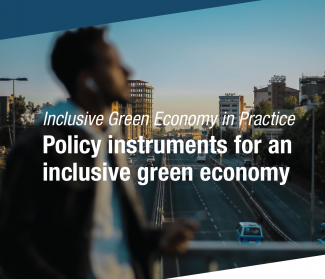FILTER
Displaying 121 - 130 of 437 publications
Access to grid electricity helps rural households start non-agricultural businesses.
| EfD Discussion Paper | Ethiopia| Peer Reviewed | Uganda
Abstract We derive causal property value impacts of the coal-to-gas fuel switching conversion implemented by several power plants in the United States. We use an extensive dataset of property…
| Peer Reviewed | ColombiaAir pollution in urban areas is one of the most severe environmental problems facing developing and transition economies. In Chile, many cities exceed the World Health Organization's norms for ambient…
| Peer Reviewed | ChileCan behavioural interventions achieve energy savings in non-residential settings where users do not face the financial consequences of their behaviour? Our paper addresses this question by using high…
| Peer Reviewed | South AfricaPurpose The quest for economic development has brought adverse effects on the environment through the release of greenhouse gases, such as carbon dioxide (CO 2). This will counter the efforts to…
| Peer Reviewed | GhanaDespite the numerous benefits of using energy efficient technologies (EETs), their adoption has been low and quite lethargic, particularly in countries within the sub-Saharan Africa (SSA) region…
| Peer Reviewed | Ghana
Renewables are cheaper than coal power in India.
New research shows that this is true even after accounting for the intermittency of renewables due to the high pollution from coal that causes disease...
Many households in Kenya depend on charcoal as an important source of energy. However, overharvesting of trees and the use of inefficient technologies promote unsustainable charcoal production...
| Peer Reviewed | Kenya

